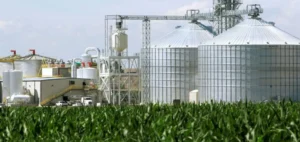Grapevine Energy Holdings, LLC, formerly known as Global Clean Energy Holdings, Inc., announced it has completed its full financial restructuring, marking the end of a process initiated under court supervision. The company, specialising in renewable fuels production from agricultural feedstocks, had its reorganisation plan approved by the U.S. Federal Court for the Southern District of Texas.
The company exits this process with a streamlined capital structure, now owned by its main creditors, including Oaktree Investment Company (OIC) and CTCI Americas, Inc. Under the agreement, Grapevine Energy secured over $60mn in exit financing, contractual support for operations, and additional cash liquidity.
Ownership change and revised governance
The change in ownership is accompanied by a complete overhaul of governance. A new board of directors has been established, comprising Gerrit Nicholas, Ethan Shoemaker, Matthew Kondratowicz, Igor Radomyshelsky, Todd Chen, Michael Yang and Brian Coffman. All bring operational or financial expertise within the energy or industrial investment sectors.
The executive leadership team is also evolving. Igor Radomyshelsky becomes interim Chief Executive Officer, while Matt Kondratowicz is appointed Chief Strategy Officer. Both also sit on the board. In parallel, Noah Verleun will lead the company’s agricultural division, focused on camelina cultivation, a feedstock used in fuel production.
End of public listing and upstream refocus
Grapevine Energy has announced its intention to file Form 15 with the U.S. Securities and Exchange Commission (SEC), which will terminate the registration of its securities and suspend its regular financial reporting obligations. The company will therefore no longer be subject to U.S. public market regulations and will continue operations as a privately held entity.
This transition to private status is expected to allow the company to concentrate on the profitability of its agricultural and industrial activities, while benefiting from the financial stability provided by new investors.






















